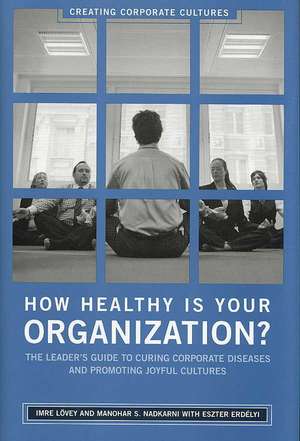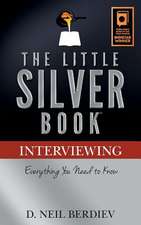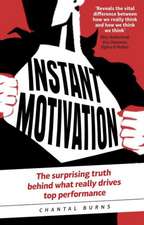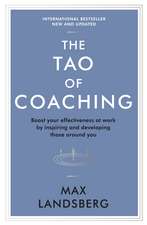How Healthy Is Your Organization?: The Leader's Guide to Curing Corporate Diseases and Promoting Joyful Cultures
Autor Imre Lövey, Eszter Erdélyi, Manohar Nadkarnien Limba Engleză Hardback – 29 iul 2007 – vârsta până la 17 ani
Preț: 309.56 lei
Preț vechi: 336.25 lei
-8% Nou
Puncte Express: 464
Preț estimativ în valută:
59.24€ • 61.93$ • 50.06£
59.24€ • 61.93$ • 50.06£
Carte disponibilă
Livrare economică 13-27 februarie
Preluare comenzi: 021 569.72.76
Specificații
ISBN-13: 9780275997762
ISBN-10: 0275997766
Pagini: 272
Dimensiuni: 156 x 235 x 26 mm
Greutate: 0.58 kg
Editura: Bloomsbury Publishing
Colecția Praeger
Locul publicării:New York, United States
ISBN-10: 0275997766
Pagini: 272
Dimensiuni: 156 x 235 x 26 mm
Greutate: 0.58 kg
Editura: Bloomsbury Publishing
Colecția Praeger
Locul publicării:New York, United States
Caracteristici
Identify the symptoms of corporate dis-ease
Notă biografică
Imre Lövey is managing partner and founder of Concordia, Inc., one of Hungary's first and most prominent management consulting and training firms. He has over twenty-five years of experience in consulting to multinationals, joint ventures, governments, and nongovernmental agencies around the world. He has served as a visiting professor at the Anderson School of Management, University of California, Los Angeles, and is the author of many articles and several book chapters on organizational development and culture.Manohar Nadkarni was founder and chairman of the Behavioral Science Center in Mumbai, India, where he specialized in organizational development and consulting to multinationals, government agencies, and local communities. He undertook several United Nations missions to promote entrepreneurship programs in developing countries.Eszter Erdélyi is a management consultant and writer, based in San Francisco.
Recenzii
The authors describe the importance of the health of an organization and what factors contribute to it or create disease. They posit that leaders have a role in helping a company thrive and profit and examine the barriers to their personal beliefs to success. They challenge the concept that management is about identifying priorities and producing results quickly and propose that organizational health is about finding a balance among the needs of the customer, organization, and its members. Using examples, they illustrate the characteristics and development of a joyful organization, organizational health criteria (including belongingness, balance in professional and private life, satisfied customers, and minimizing entropy), symptoms of problems, and the role of the executive.










